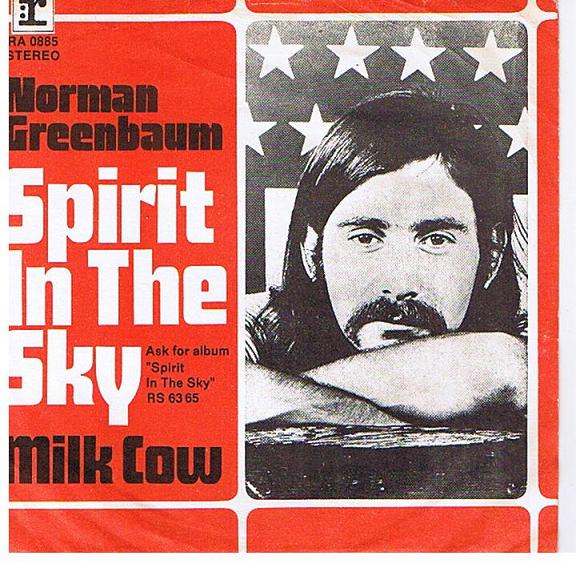
The song’s “unlikely lyrics and distinctive fuzz guitar sound, was a winning – and surprising – combination”
Back in the 1970s, when rock music was still being embraced by Top 40 radio, it was commonplace for multiple genres to be programmed and for listeners to hear songs from Chicago, the Carpenters, Stevie Wonder and Steely Dan all in a row on the AM dial.
It was also a decade where songs with surprising topics became huge hits that would not likely receive airplay today. In other cases, there were novelty records, instrumentals and more that, when we look back, are pretty astonishing that they became hits.
Our 11 surprising 1970s radio hits include several classic rock legends.
11) “Frankenstein” by Edgar Winter Group
There was a time when instrumentals often became huge Top 40 radio hits. This song was not originally slated for The Edgar Winter Group’s LP They Only Come Out at Night but was added to its tracks just prior to the album being manufactured. It was serviced to radio in 1973 as the B-side to the song “Hangin’ Around.” But when DJs started flipping the 45 over and playing “Frankenstein” their request lines lit up. By May it hit #1. Bonus points: It was the first hit song on which the lead instrument was the relatively newfangled electronic synthesizer.
10) “Spill the Wine” by Eric Burdon and War
Burdon, of course, was the lead singer of The Animals the British Invasion band who enjoyed huge success with their 1964 cover of “House of the Rising Sun.” Several years passed and Burdon started the funk-rock band War. Their first single, 1970’s “Spill the Wine,” is half-narrated, half-sung by Burdon and features unintelligible sounds of a woman speaking in Spanish and that popular ’70s instrument, the jazz flute. Bonus points: War enjoyed no less than seven Top 10 singles including “Why Can’t We Be Friends” and “The Cisco Kid.” Here’s a live in the studio version of “Spill the Wine.”
9) “Convoy” by C.W. McCall
Anyone born after 1970 should simply skip to the next song on this list because you wouldn’t understand – or believe – that trucks (and some cars) were equipped with CB (for citizens band) radios so that their drivers could talk to fellow drivers on the road. Drivers used “handles” for their names, so in the case of “Convoy,” which hit #1 in 1976, the primary narrator is “Rubber Duck,” as in: “Breaker one-nine, this here’s Rubber Duck.” Bonus points: That’s a big 10-4 good buddy means “understood.”
8) “Walk on the Wild Side” by Lou Reed
Let’s get this straight. A song with lyrics like “even when she was giving head” and “the colored girls,” that’s essentially about gay prostitutes went all the way to #16 on the pop charts in 1972? Scandalous! Once Top 40 radio programmers figured out what it was about, Reed never had a single chart in the Top 100 again. Bonus points: all of the characters, like Little Joe, Candy and Holly, were based on real people in Andy Warhol’s world. Here’s a cool live version…
7) “Spirit in the Sky” by Norman Greenbaum
Greenbaum, raised as an Orthodox Jew, was moved by watching Porter Wagoner perform a gospel number on TV. “I thought, ‘Yeah, I could do that,’ knowing nothing about gospel music,” he told the New York Times in 2006. “So I sat down and wrote my own gospel song. It came easy. I wrote the words in 15 minutes.” The unlikely lyrics – I’ve got a friend in Jesus – combined with the distinctive fuzz guitar sound, was a winning – and surprising – combination and it vaulted “Spirit In The Sky” to #3 in 1970 on the Hot 100. Bonus points: Check out the URL for Greenbaum’s website.
6) “The Candy Man” by Sammy Davis Jr.
Don’t get us wrong… we love the man. Davis started his career in vaudeville at the age of three, performing with his father in the Will Mastin Trio. He was a “triple threat” as a terrific singer, dancer and actor. He recorded prolifically; two other signature songs are “What Kind of Fool Am I” and “I’ve Gotta Be Me” and he was in one of the first “supergroups.” The surprise for us is that “The Candy Man,” was his only #1 pop hit and it came at a time – 1972 – when the old school performers rarely got Top 40 airplay. Bonus points: It was so successful that it was ranked as the year’s fifth biggest single.
5) “American Pie” by Don McLean
The song about “the day the music died” was released in 1971. When it reached #1, it became, at 8:36, the longest song to earn that achievement. The record label recognized that it couldn’t edit it, so it released the song in its entirety on two sides of a seven-inch 45 RPM single with a split in the middle. Bonus points: In 2015, the manuscript sold for $1.2 million. (Best Classic Bands has written about the meaning of its lyrics, from an insider’s point-of-view.)
4) “Disco Duck” by Rick Dees and His Cast of Idiots
The springboard to Dees’ national success as a radio DJ was with this 1976 novelty record timed perfectly for when disco was taking off in the clubs and on Top 40 radio. It’s fairly safe to say that the song led to the decline of western civilization. Bonus points: Dees was working as a radio DJ in Memphis at the time and his own station wouldn’t let him play it.
If you’re a new Best Classic Bands reader, we’d be grateful if you would Like our Facebook page and/or bookmark our Home page.
3) “Short People” by Randy Newman
Newman earned a lot of street cred as a songwriter of such hits as “Mama Told Me (Not To Come),” a #1 for Three Dog Night in 1970. However, this misunderstood song about people with “little cars that go beep beep beep” was the outlier of his own Top 40 accomplishments. Though it reached #2 in 1977, none of his other singles hit the Top 50 of the Hot 100. Bonus points: If you think 1982’s catchy “I Love L.A.” was a hit you’d be wrong; it never charted.
2) “Lola” by The Kinks
How many times – or, in some cases, years – did it take you to pay attention to the lyrics of this catchy song? Depends on your age, I guess. My pre-teen friends and I had sung along to it dozens of times, blissfully unaware of the topic, even though Ray Davies wasn’t hiding the topic from us: “she walked like a woman and talked like a man” and “girls will be boys and boys will be girls.” Radio programmers made the 1970 song The Kinks’ first Top 10 single in the U.S. since 1965. The original version was banned by the BBC because of the lyrics’ Coca-Cola product placement. When the Kinks performed it on Top of the Pops, they used the “cherry cola” version. Bonus points: How cool is it when Davies sings: “c-o-l-a cola”?
1) “My Sweet Lord” by George Harrison
On the one hand it’s absolutely stunning and includes fellow Beatle Ringo Starr plus Eric Clapton, Billy Preston, members of Badfinger and others. On the other hand, it’s lyrics prominently feature Hindu chanting, not the kind of thing one would expect to hear on Top 40 radio. On December 26, 1970, it famously became the first #1 solo hit by a Beatle. Bonus points: we continue to miss George every day.
Related: BCB readers have enjoyed reading this so much, we’ve written five sequels. Enjoy 11 Surprising 1970s Radio Hits (Part 2), Part 3, Part 4, Part 5 and Part 6.


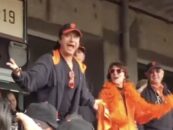
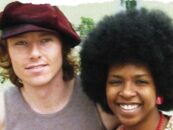
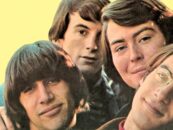
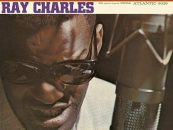

19 Comments so far
Jump into a conversationGreat little factoids about some truly odd-ball songs. Sammy Davis Jr. had another incredible talent – he was a jazz drummer that could hold his own against Gene Krupa and Buddy Rich (which he did in several TV appearances).
Also, ‘Lola’ originally featured the lyrics COCA COLA. The BBC banned the tune – not because of its warped trans-gender narrative, but because you couldn’t product place in songs broadcast on the BBC. Ray Davies had to change the lyric to the now recognized generic “C-o-l-a. Cola.” You can find the original (from 1965, I believe) on YouTube.
Just to clarify. The year was 1970. The original line was
“Taste just like Coca Cola c-o-l-a cola”. It was changed to “cherry cola”. I always thought the reason for the switch was that Coke didn’t like it.
Thanks for he info.
I believe “Coca” was changed to “cherry”
Greg – great stuff here. Many guilty pleasures in the list, and in your sequel.
A story I heard about Candy Man was that Sammy Davis did not want to record the song. He thought it was a light weight children’s song. Supposedly, he cut the vocals in one take and walked out of the studio, telling everyone present that he never wanted to hear the song again. And it was a huge hit!
War actually existed as a band already, in Long Beach, called Night Shift. Burdon did not start the band, he just appropriated an existing band.
That was some great music back then.
Let’s not forget the other great example of gender ambiguity from Lola:
“I’m glad I’m a man and so is Lola”.
You forgot “they call him the streaker”. In 1974 the song inspired nudes at my graduation. Funny, fun song.
It’s in Part 2 of the series! https://bestclassicbands.com/11-1970s-surprising-radio-hits-8-16-166/
I was hoping to see The Buoys hit song Timothy. Nothing like a little cannibalism to top the charts.
And a few years later, Rupert washed it down with a “Pina Colada” (Escape). Still waiting for a dessert song.
Side note on “Frankenstein”: Edgar Winter’s bass player was the late Dan Hartman who went onto score hits like “Instant Replay” and “I Can Dream About You”. Extra bonus points: one of the guitarists in the video for “Instant Replay” is Vinnie Vincent (the other being G.E. Smith who played with so many), who of course went on as the first replacement for Ace Frehley in KISS.
And another side note. Edgar’s guitar player was Ronnie Montrose.
Only for a short time. He left before the band toured “They Only Come Out at Night” and was replaced by longtime collaborator Rick Derringer for the remainder of their run. Side note, I saw that tour in Jacksonville FL in ’73 – with ELO opening (their first US tour). It was my second concert ever and it set a pretty high bar for all shows I’ve seen.
You can add Chuck Mangione’s jazz /pop classic Feels So Good to a new list.
Great info here, always learn something on this site or something my boomer brain forgot LOL!
I absolutely hated “The Candy Man” when I was a kid. And still do! One side note: “Walk on the Wild Side” didn’t become a hit until ’73, even though the album it was from was released in ’72. It actually didn’t chart until February of ’73, and didn’t peak until mid-spring.
Sorry to be a tad negative here but the only tune worth anything was Frankenstein by Johnny Winter. The rest is garbage, throw-away songs that never should have seen the light of day. I have to agree with Sammy Davis Jr. that Candy Man was so far beneath his talent and by sheer catchy-ness it became a hit. Just my opinion, people, OK? Those of us who grew up in the ’60’s, ’70’s, and you can add the ’80’s had some of the best of the best in rock, but we had to tolerate some of these little nonsense songs. Like I said, it’s just my opinion. Those of you who may agree, please Rock On! Peace and Love to all!